I made Real Madrid disappear from the Champions League final using Oppo's AI Eraser, and now I can't trust sports photos
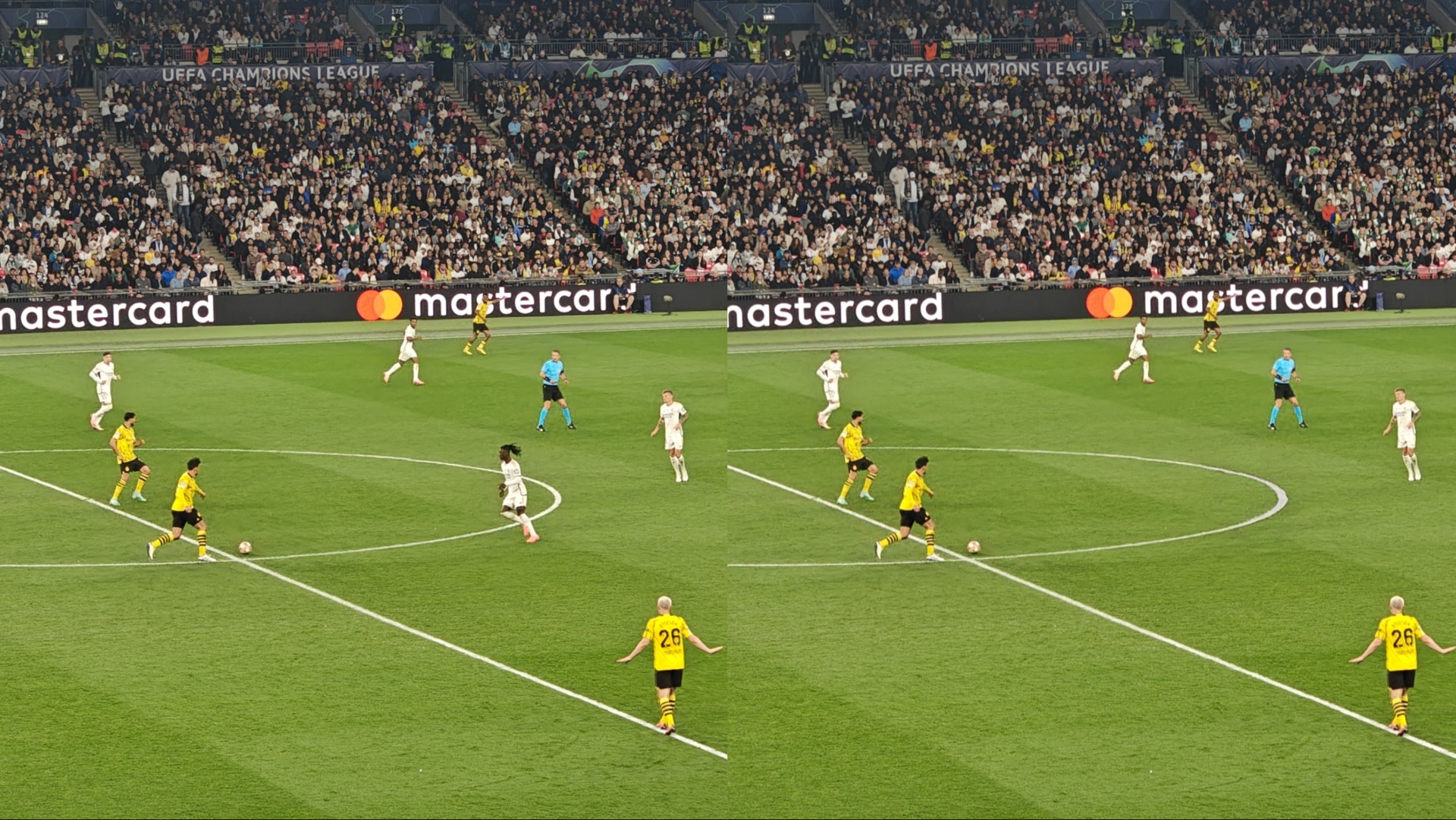
Sign up for breaking news, reviews, opinion, top tech deals, and more.
You are now subscribed
Your newsletter sign-up was successful
Football is a simple game: 22 players chase a ball around a pitch for 90 minutes and in the end, Real Madrid always wins. At least, I think that’s how the saying goes?
The champions of Spain became champions of Europe for a record 15th time this weekend after beating Borussia Dortmund 2-0 at Wembley Stadium, but I’d wager that the score would’ve been different had the German underdogs taken to the pitch with Oppo’s latest flagship smartphone, the Oppo Find X7 Ultra.
Why do I say this? Well, the Find X7 Ultra is currently the only phone in the world to boast two periscope lenses. The first uses a Sony IMX980 sensor to offer 3x optical zoom, while the second uses a Sony IMX858 sensor to provide 6x optical zoom. What does that have to do with football? Nothing. Nothing at all. But the Find X7 Ultra is also the first phone to pair its two periscope zoom lenses with a terrifyingly good AI eraser tool, which I used to completely erase the Real Madrid players from the face of the Wembley pitch.
Oppo’s new AI eraser tool – appropriately dubbed AI Eraser – works in much the same way as Google’s Magic Eraser and Samsung’s Generative Edit tool. Once you’ve snapped a pic, you simply circle the subject or area you want to erase, and after about six seconds of processing, the Find X7 Ultra returns an edited photo with a patch of generative imagery layered over the top of that area. A neat little ‘Compare’ toggle also appears on the edited image, which lets you view the before and after without having to swipe between photos.
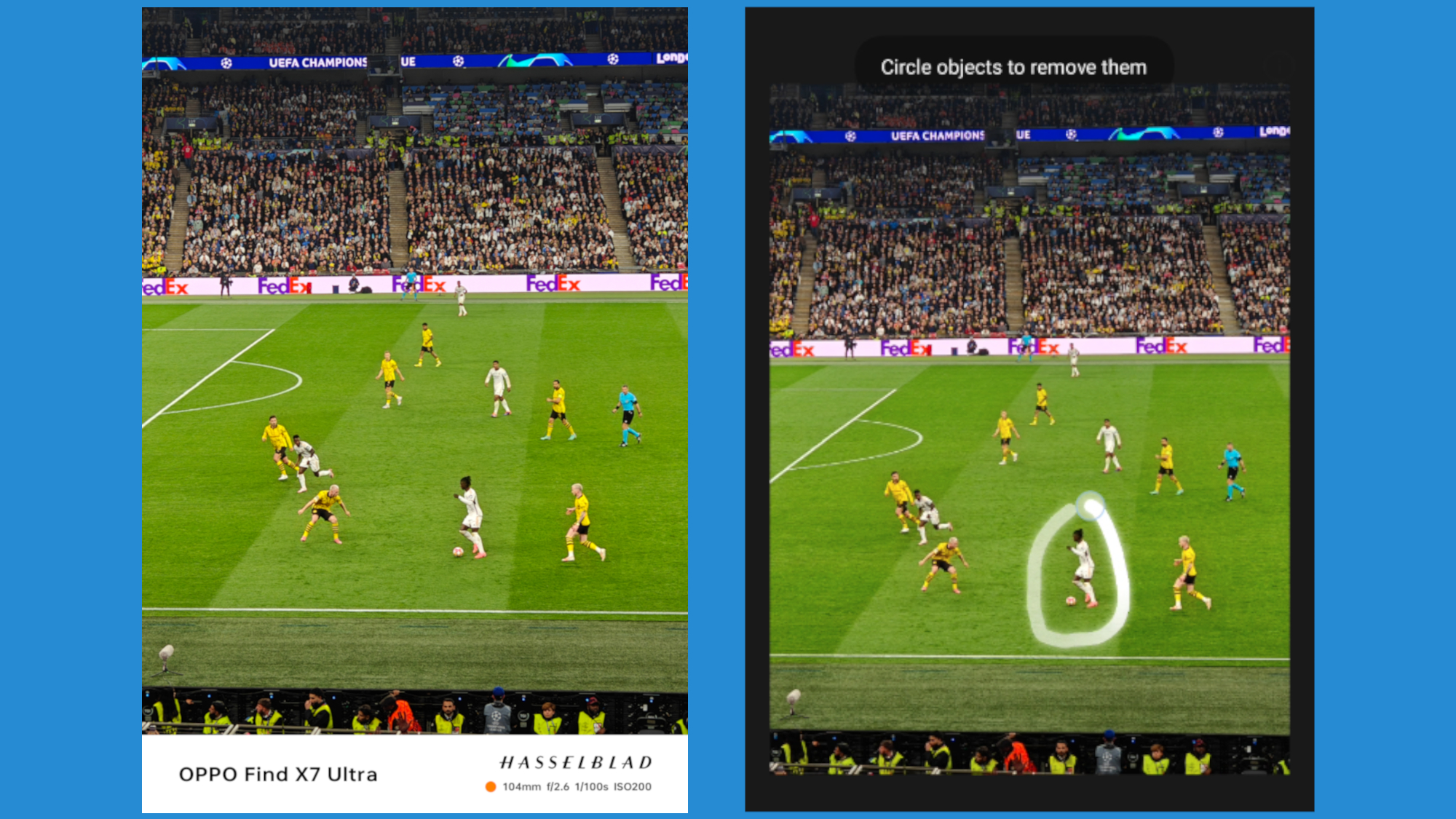

Unfortunately for photography purists and AI skeptics everywhere, Oppo’s AI eraser tool is pretty darn good. As you can see in the list of images below, the feature has, for the most part, effectively made the selected Real Madrid players disappear without a trace. It doesn’t work perfectly every time – in some cases, the eraser has left behind a slight blur, and hasn’t replicated grass lines totally accurately – but the uninitiated viewer could be easily fooled into thinking that Dortmund had the run of Carlo Ancelotti’s side during this year's Champions League final.
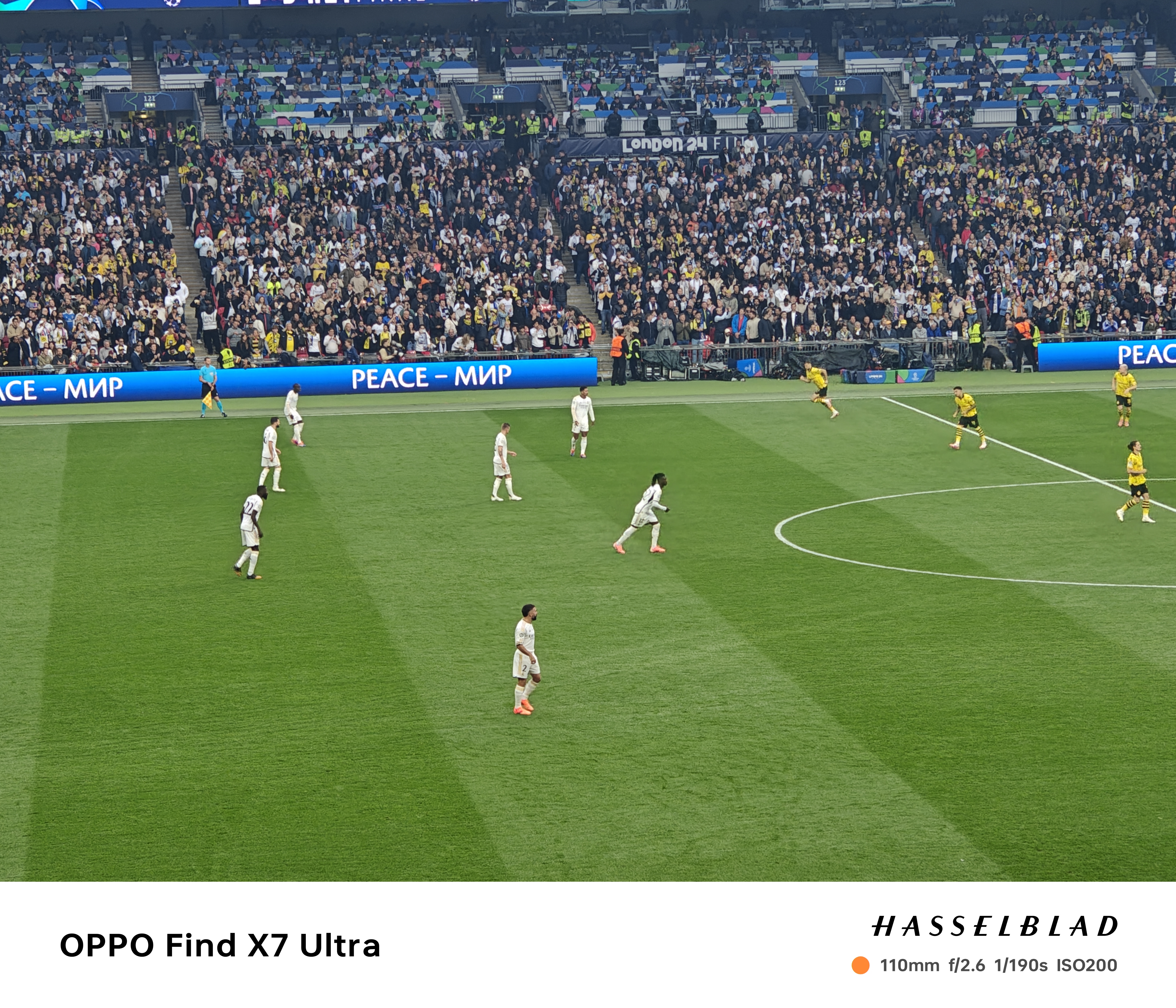
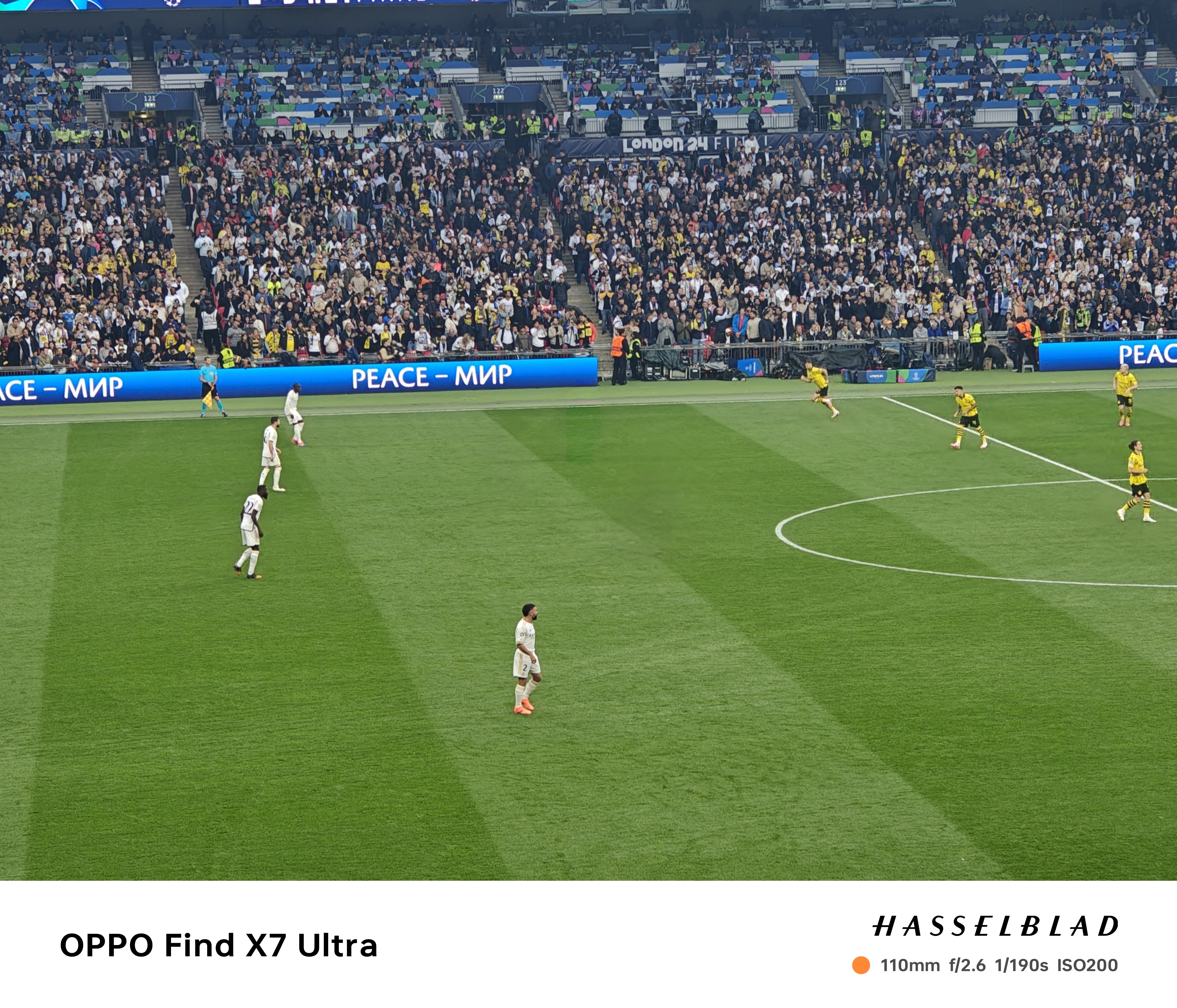
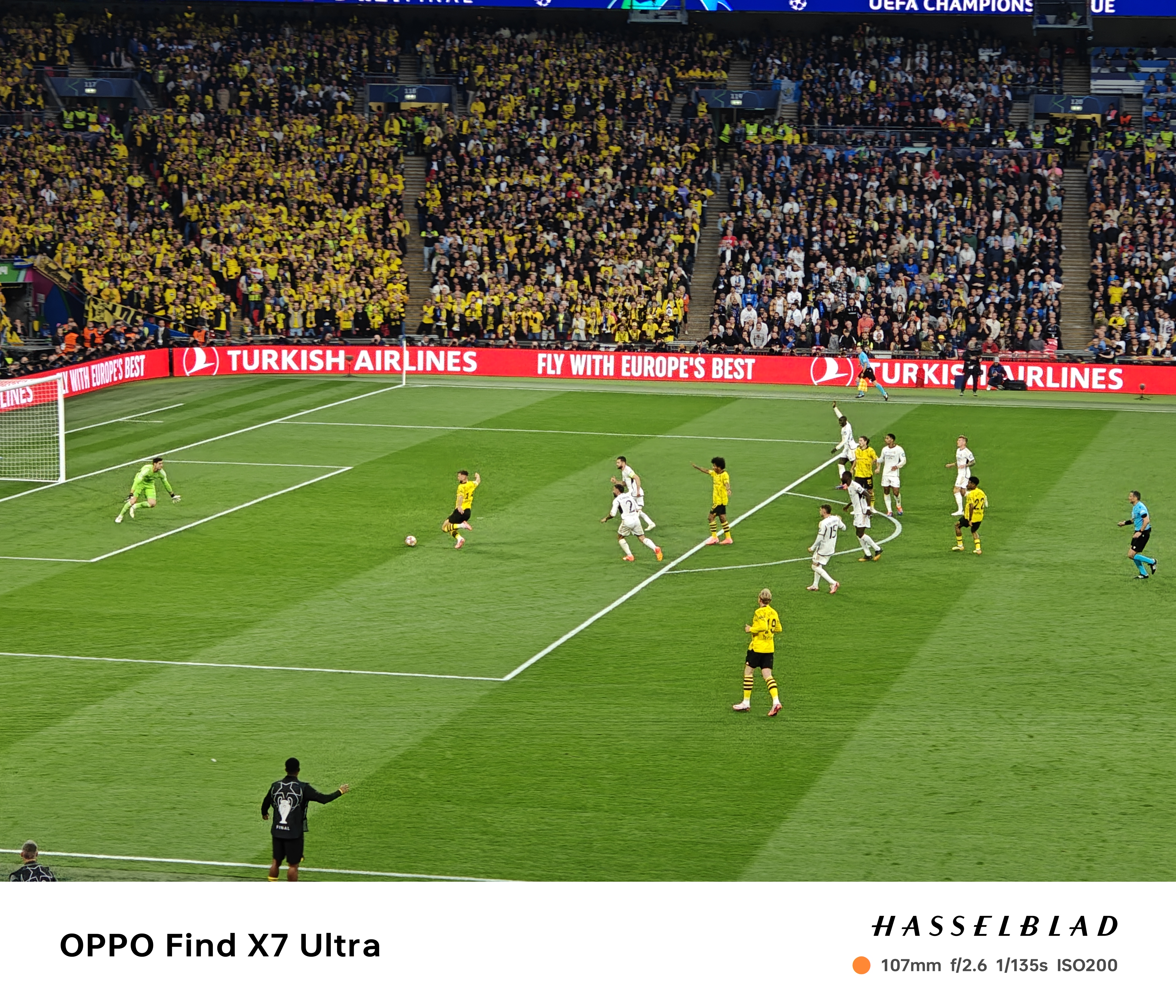
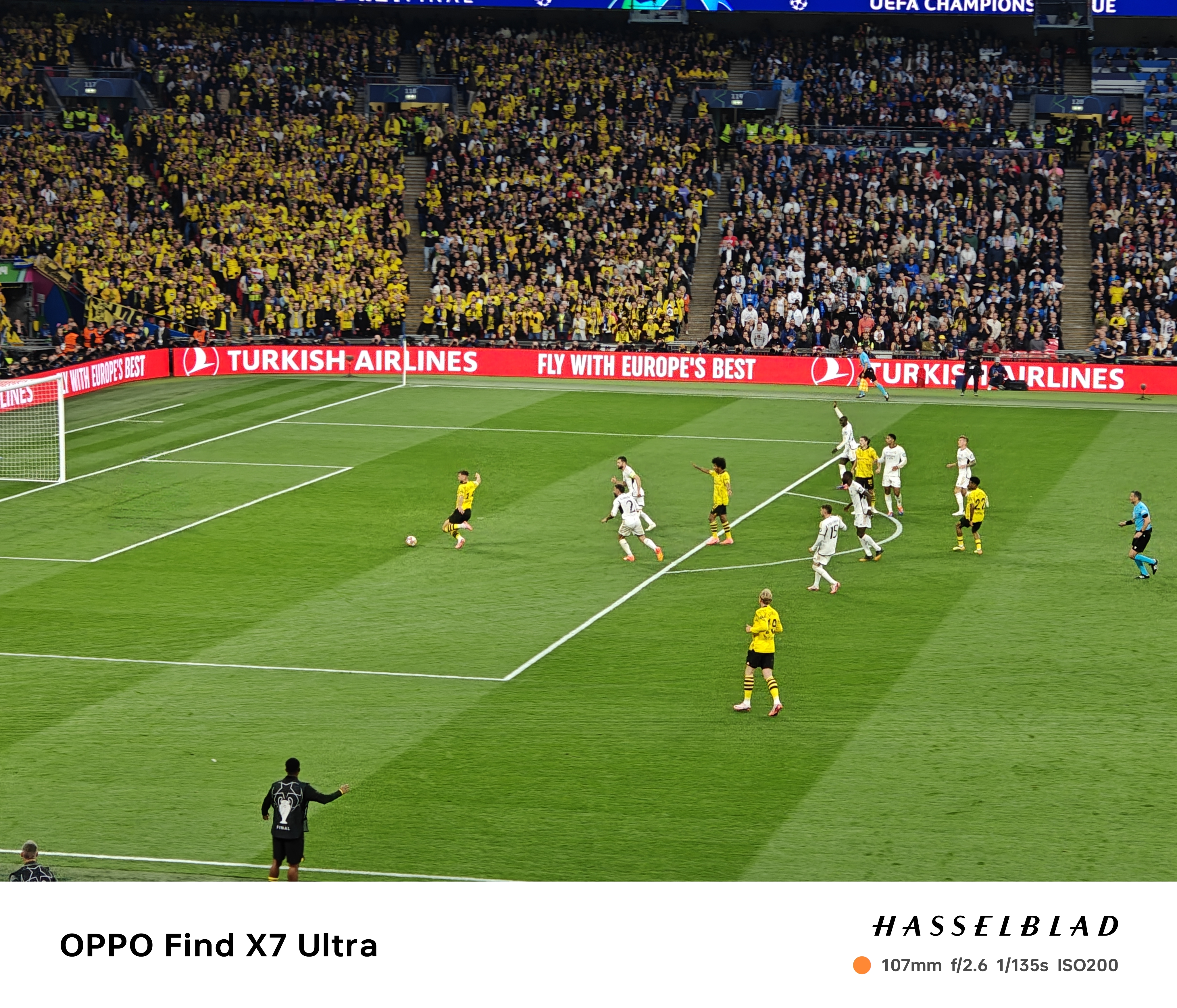
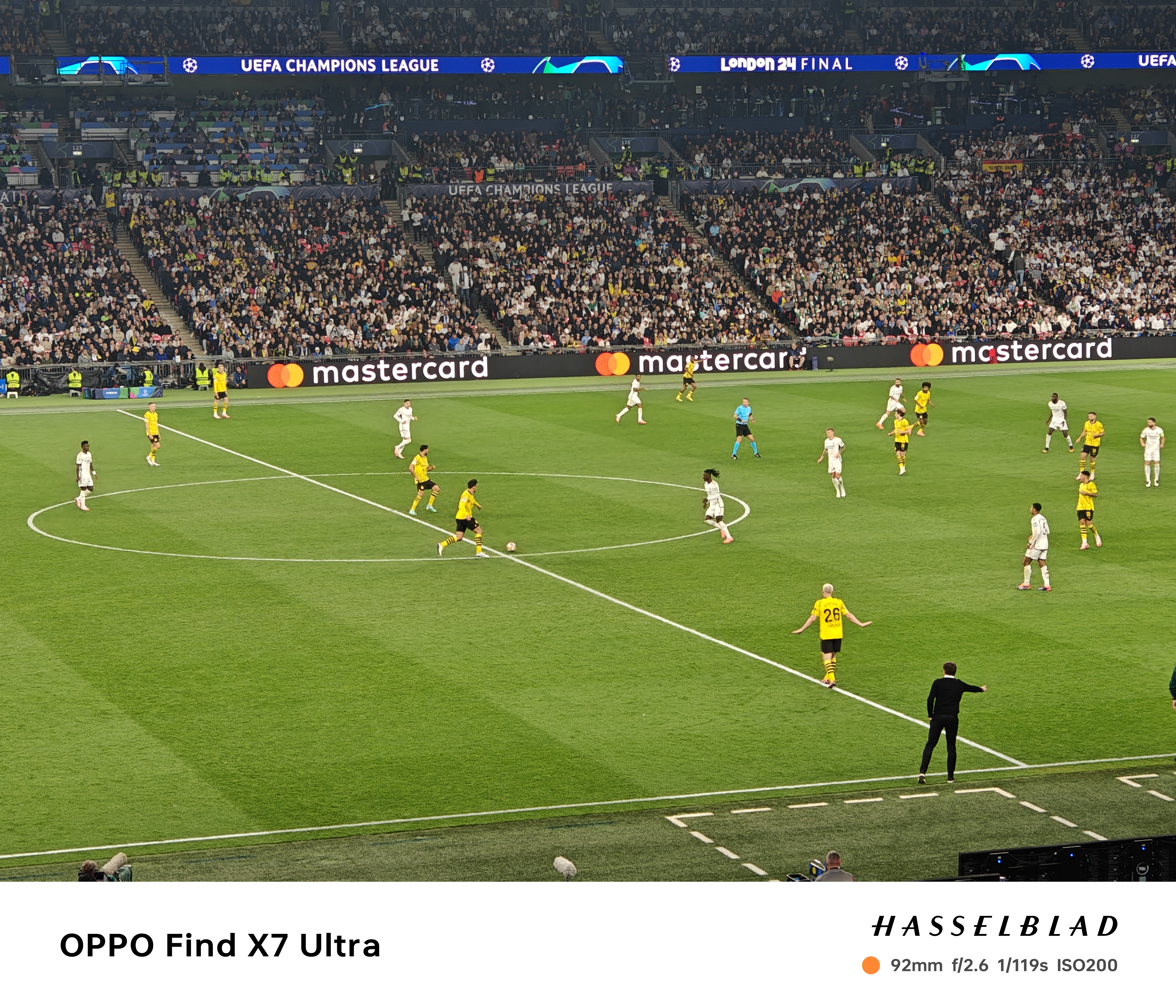
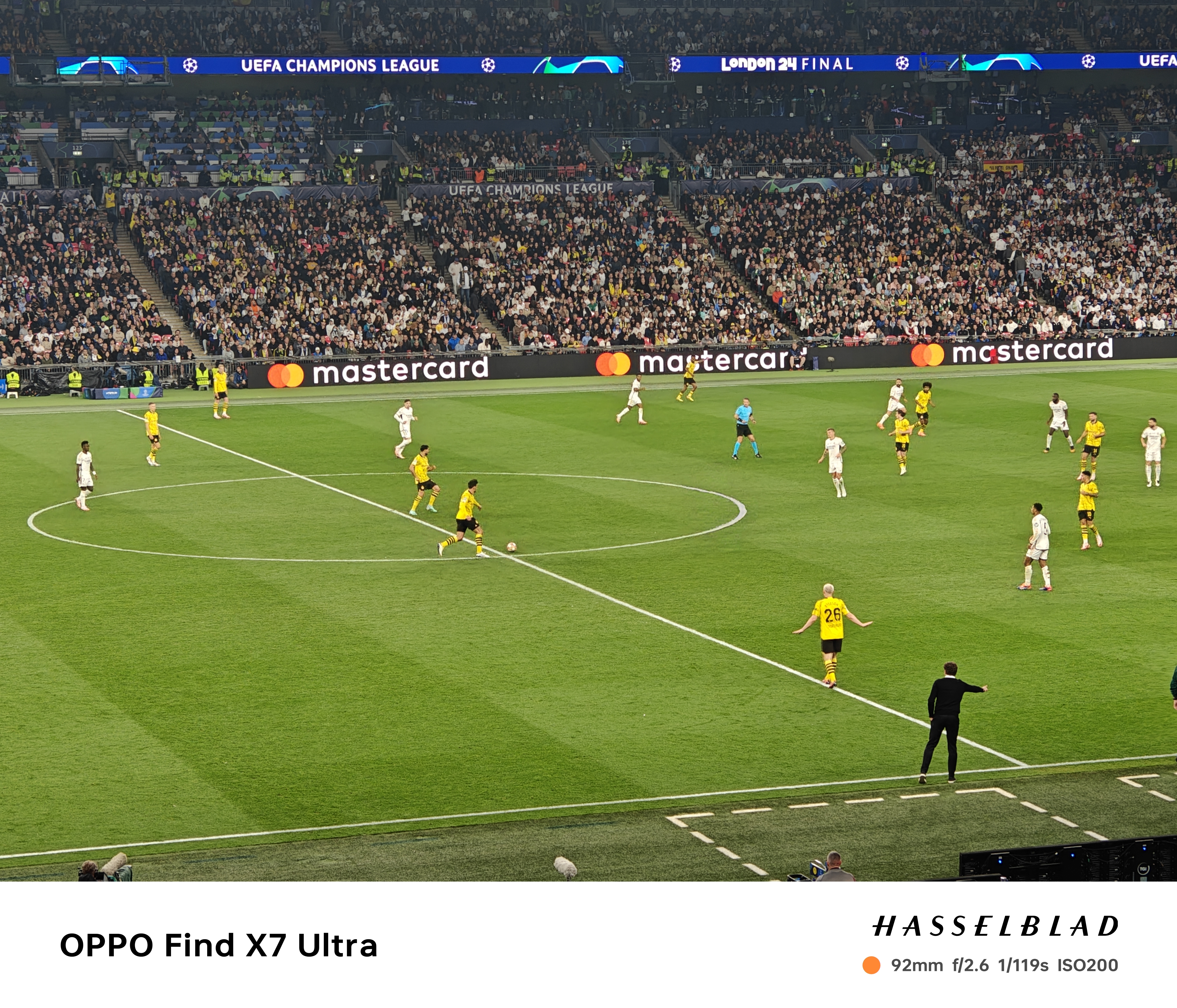
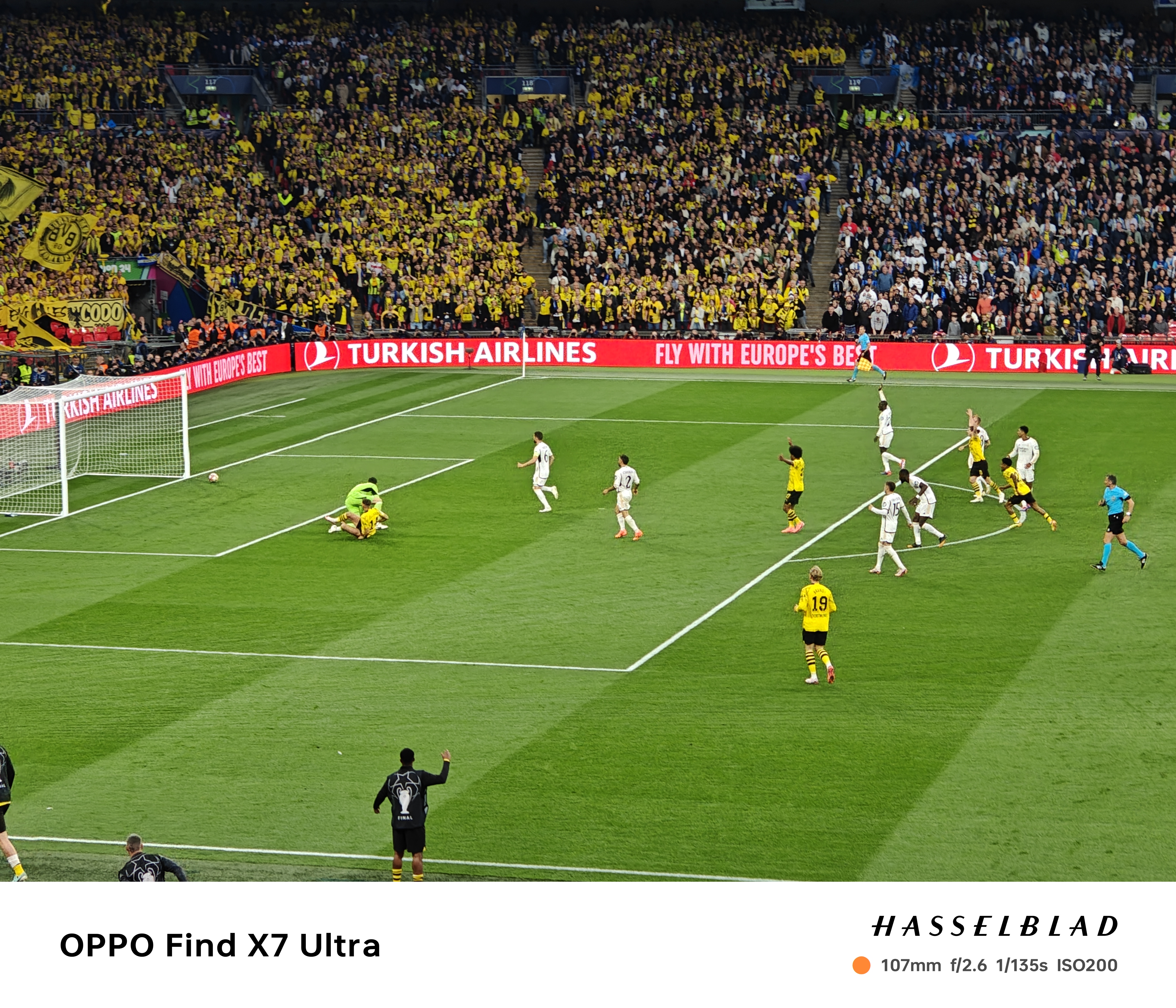
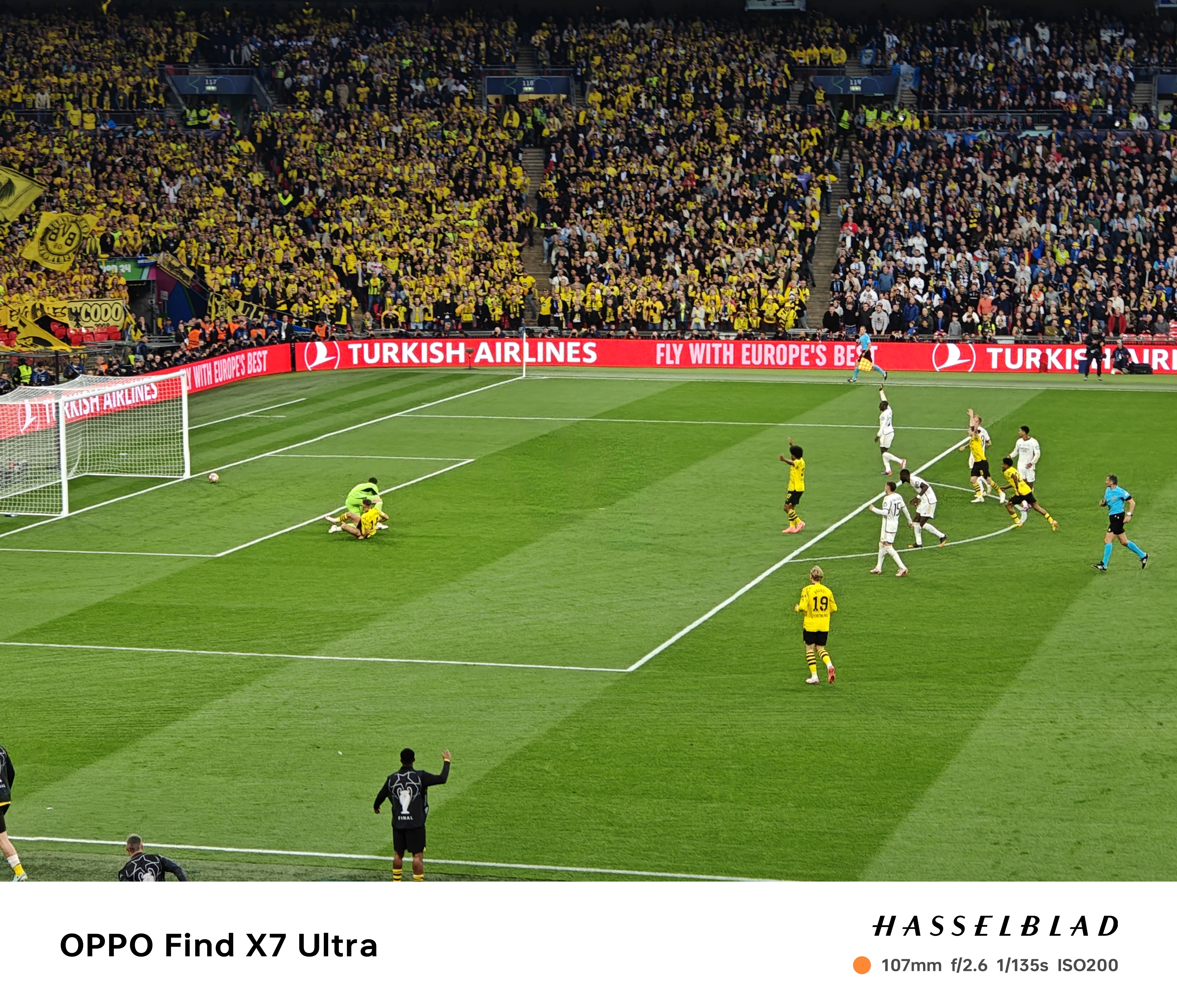
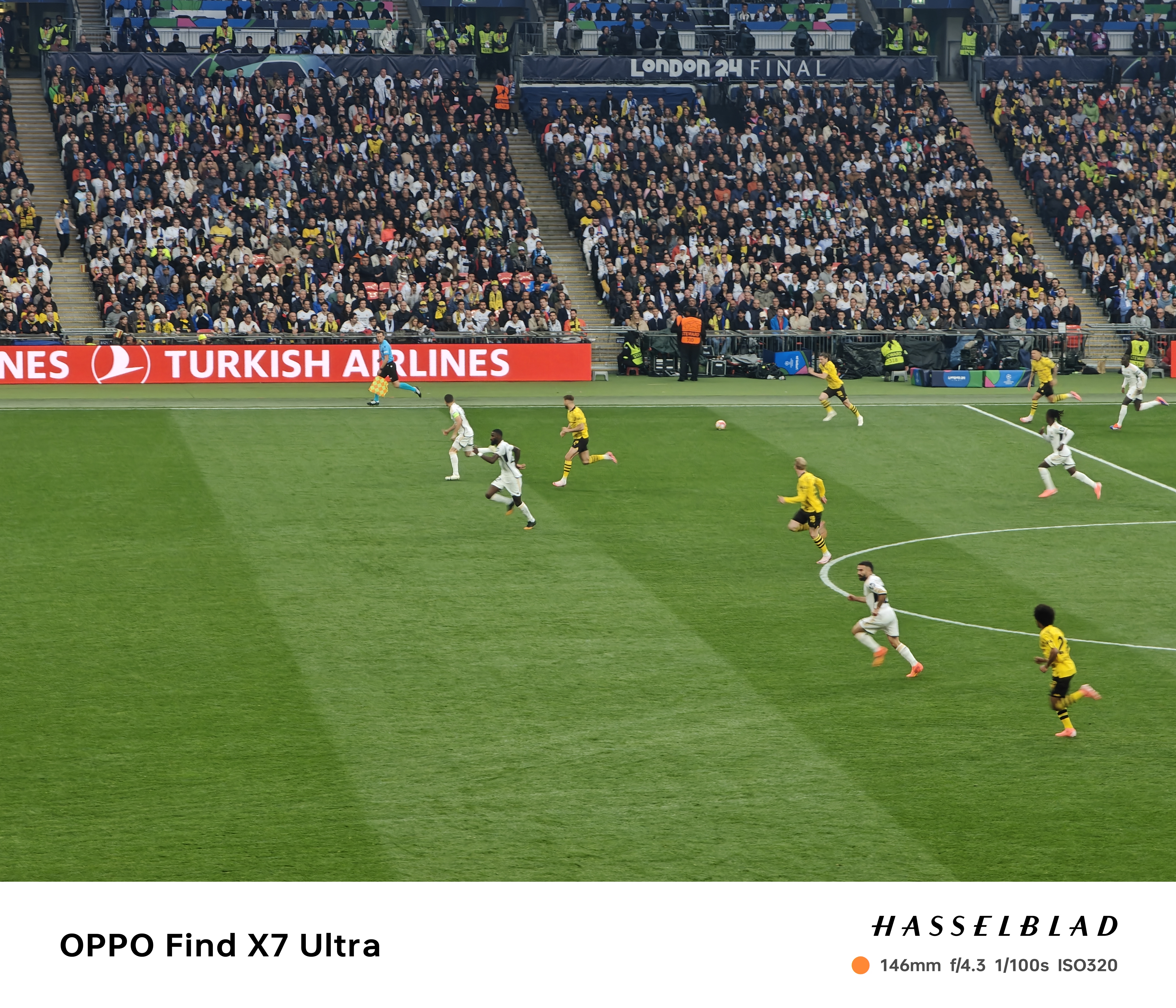
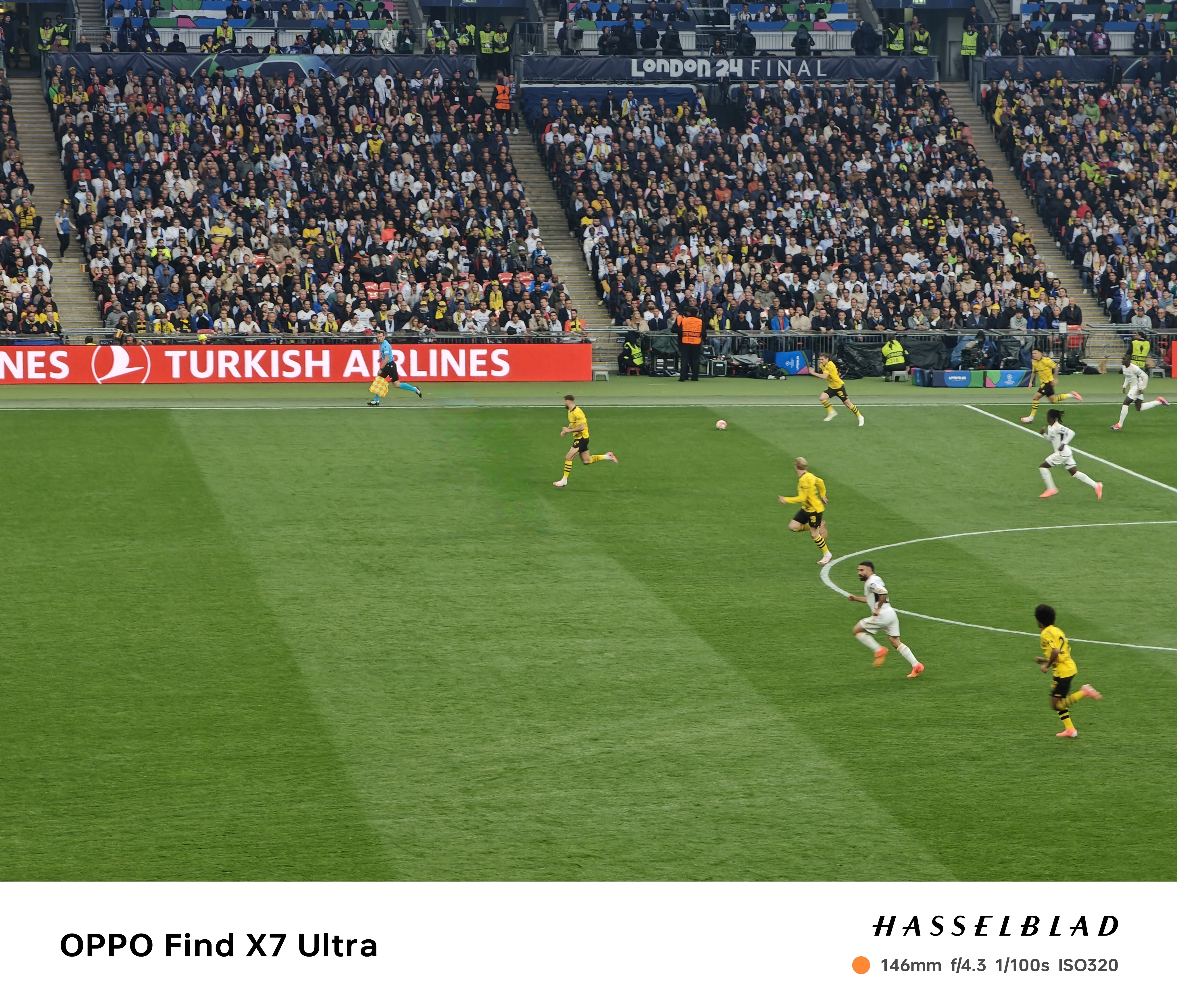
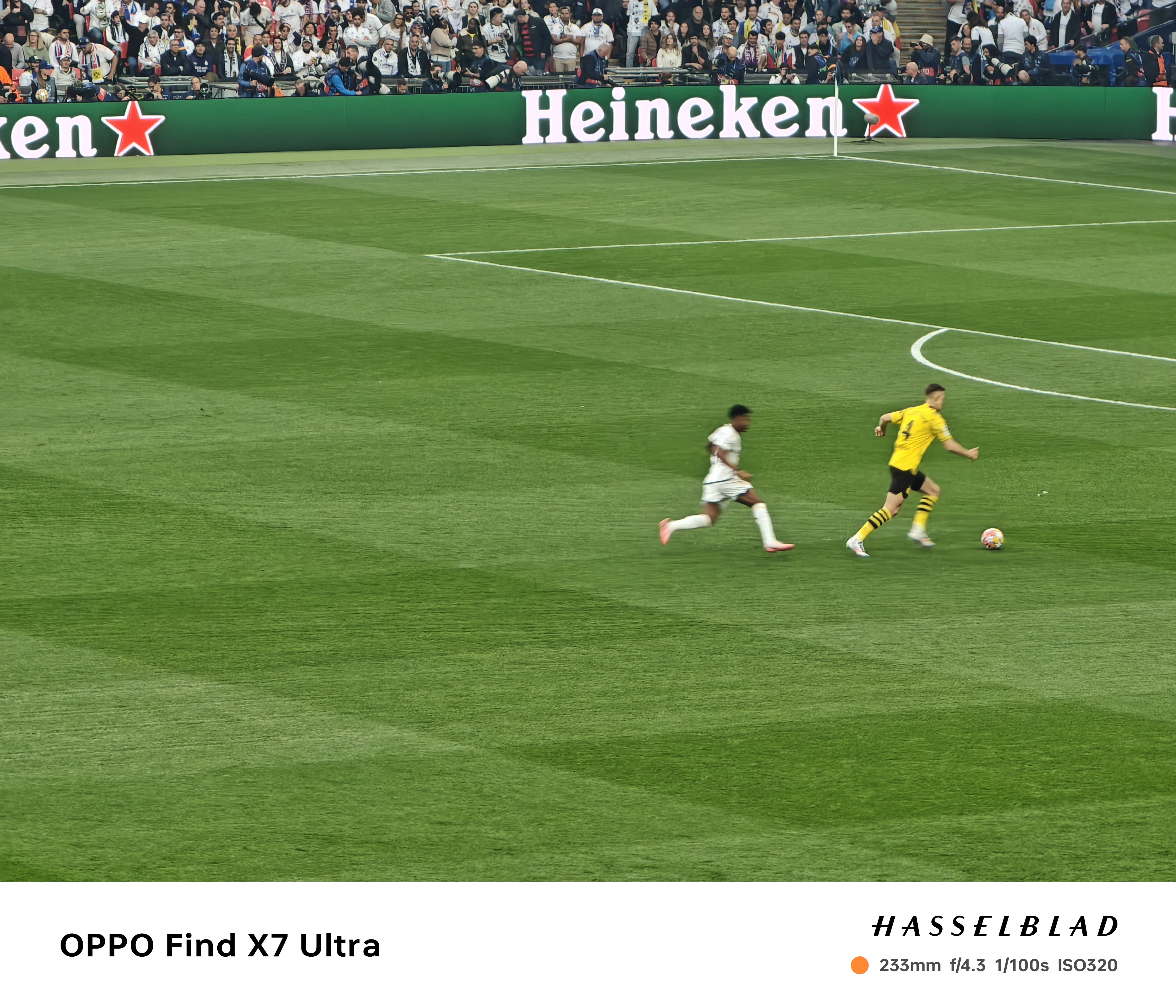

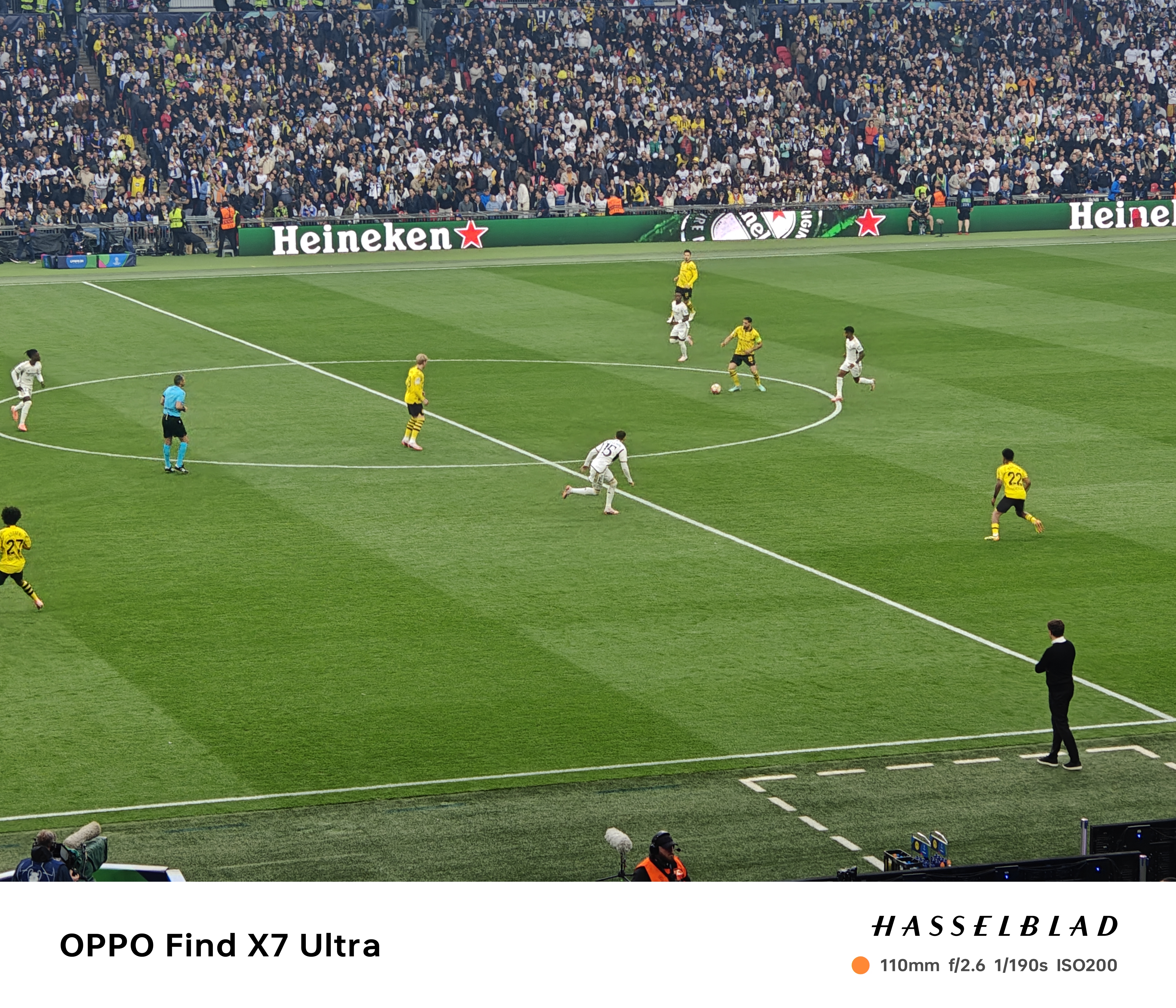
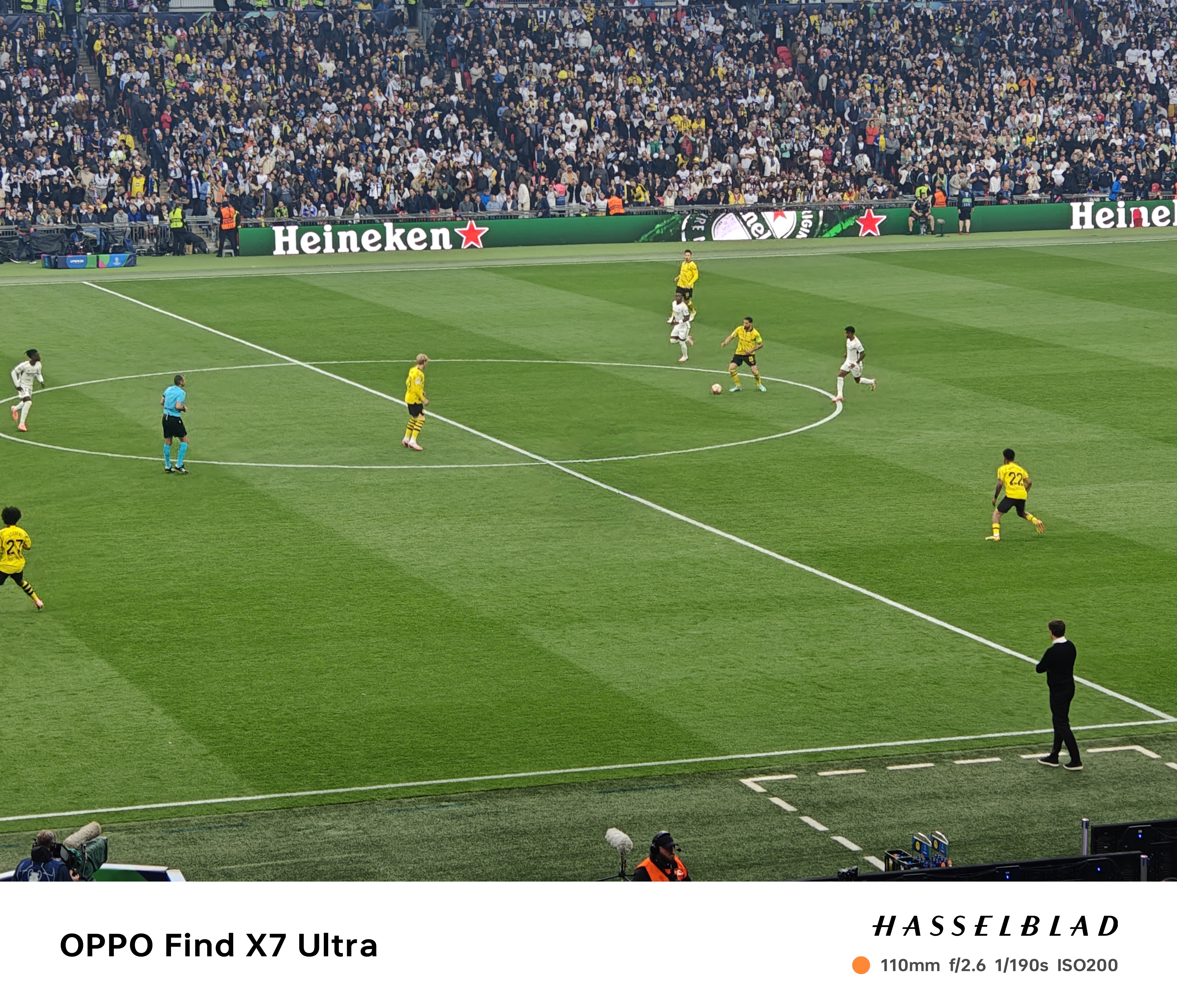
The question of whether the world’s best phones should grant users the ability to tamper with photos in such a drastic way is altogether larger.
In a conversation with TechRadar following Galaxy Unpacked in January, Samsung defended its generative photo editing tool on the Galaxy S24 series by claiming that people use smartphone cameras for two reasons: to capture the moment, and to make something new.
Sign up for breaking news, reviews, opinion, top tech deals, and more.
“When people go on Instagram, they add a bunch of funky black and white stuff – they create a new reality,” Samsung executive Patrick Chomet told us at the company's launch event. “Their intention isn’t to recreate reality, it’s to make something new. So Generative Edit isn’t a totally new idea.”
I suspect the top brass at Oppo share that sentiment. After all, you’d assume that tools like Generative Edit and AI Eraser aren’t being deployed by professional photographers to capture the perfect photo, just as you’d hope that the agencies buying those photos have rigorous checks in place to guarantee their authenticity.
Alas, the Kate Middleton photo editing debacle suggests otherwise, so perhaps we should be more cautious of the features being rolled out by Oppo, Samsung, Google and the like. That said, as a bit of harmless fun to convince yourself that Real Madrid could, one day, lose a Champions League final, AI Eraser is a blast.
You might also like...

Axel is TechRadar's Phones Editor, reporting on everything from the latest Apple developments to newest AI breakthroughs as part of the site's Mobile Computing vertical. Having previously written for publications including Esquire and FourFourTwo, Axel is well-versed in the applications of technology beyond the desktop, and his coverage extends from general reporting and analysis to in-depth interviews and opinion.
Axel studied for a degree in English Literature at the University of Warwick before joining TechRadar in 2020, where he earned an NCTJ qualification as part of the company’s inaugural digital training scheme.